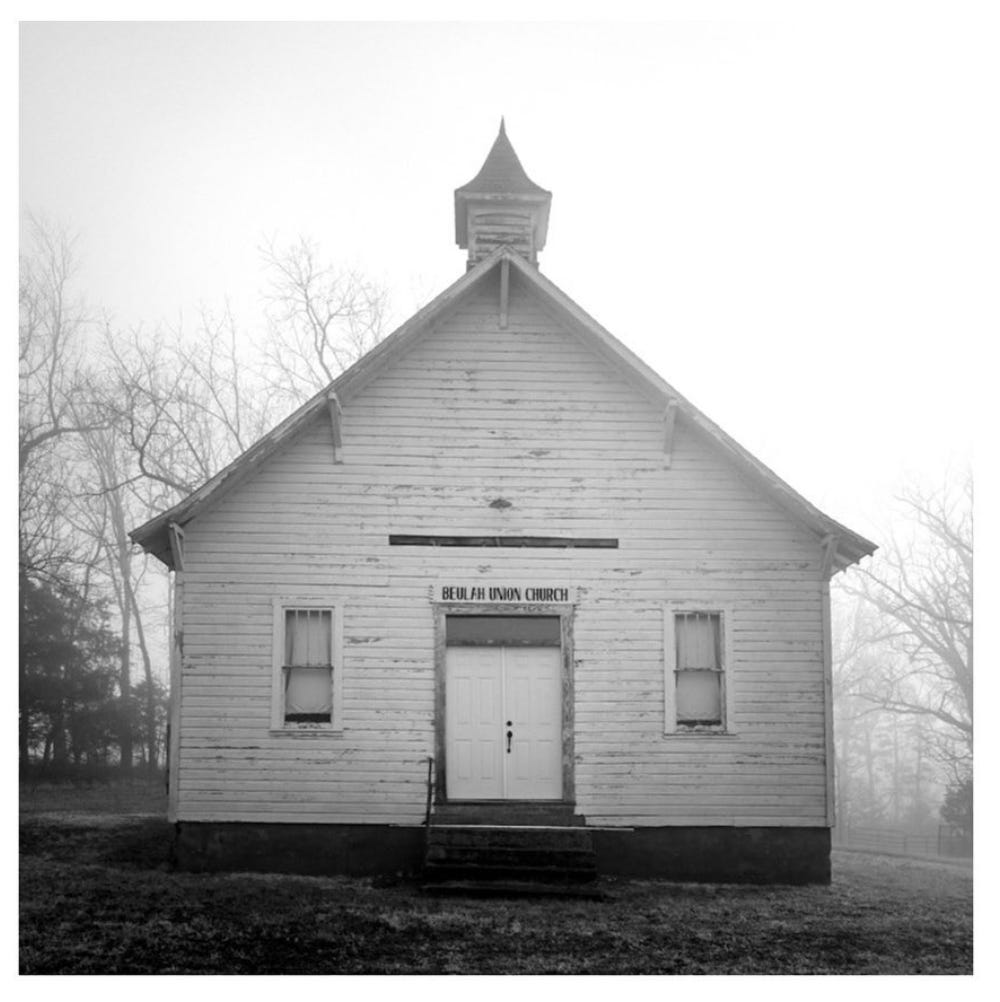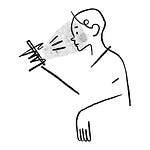What could be said of Good Friday that hasn’t been said for thousands of years? Today is a day for listening more than talking, for hearing from God more than telling God all we know. Today is a day of mystery, and it’s good for us to sit in the mystery without constantly searching for answers. Seth & Tsh reflect on the goodness that Jesus is God and they are not.
Seth: Website | Newsletter | Twitter | Instagram
Tsh: Website | Newsletter | Twitter | Instagram
Tsh’s Rule of Life workshop
A Swim in a Pond in the Rain, by George Saunders
Orphan Train, by Christina Baker Kline
Find us on Substack–we have some good stuff coming soon
Give your mom the most meaningful gift this Mother’s Day with StoryWorth. Go to StoryWorth.com/drink to get $10 off your first purchase!
Scroll down for the transcript.

Tsh: This is A Drink With a Friend, I’m Tsh Oxenreider.
Seth: And I’m Seth Haines.
Tsh: Seth, what are you drinking right now?
Seth: Today, I am drinking a sparkling water, a flavored sparkling water but it is not a brand that we have featured yet, Tsh. I’m drinking Spindrift. I get it at Whole Foods, I don’t know who makes it. But it’s pretty good and this is the half-tea half-lemon sparkling water and I’m not going to lie to you, it tastes a little bit skunky, if you know what I’m saying. I might be addicted to it a little bit.
Tsh: Oh, wow. I did not know sparkling water came in tea.
Seth: I could drink this all day, every day, and probably not get tired of it which is really weird for me to say. I was going to drink coffee, it is the morning as we record this, we’re still a little bit off schedule. I’ve had so much coffee that I’m getting jittery.
Tsh: Oh, yeah. I’ve been there.
Seth: I can’t do that anymore today. What are you drinking?
Tsh: Literally, copy and paste from last week and I wanted to be more original but this is what I got, it’s the morning. It is my standby Ethiopia coffee.
Seth: Word. On that Ethiopian, what’s the profile? Is it blueberries?
Tsh: Yirgacheffe. It’s the blueberries, yep. It’s my go-to.
Seth: Isn’t it amazing?
Tsh: It’s weird. It’s one of the only coffee beans that I agree with its description. Sometimes when they’ll say citrusy notes of jasmine and I’m making stuff up…honey. I’m like, really? Are you sure? To me, blueberries is a real thing.
Seth: When you get a good Yirgacheffe, it’s like a blueberry comes and punches you in the face.
Tsh: Right. Exactly.
Seth: And it gives you an aftertaste of coffee.
Tsh: And it’s lovely.
Seth: It is lovely.
Tsh: It is Good Friday, today when this goes out. We’re actually recording it a few days before so it’s basically Holy Week. We were just having this discussion about what to say on Good Friday and it’s a tricky dance for us. What are your initial thoughts about Good Friday?
Seth: I think my initial thoughts are what to say on Good Friday/if to say anything on Good Friday. This is my however many-eth year of celebrating Lent and what I find is that in Holy Week everybody has something to say and there’s so many people that are saying really good things that why do I even need to add to it? There are so many good people in the Church who are saying amazing things, offering amazing reflections. What do I have to bring to the conversation? A big part of what I’ve been struggling with this week in my own personal writing, in my own personal space, is why say anything? Why not just be quiet? For me, that’s my initial thought. Maybe it’s time for us to be a little bit more quiet. As we discuss this, it actually seemed a little bit appropriate to just say, hey let’s take a quieter approach, let’s take a shorter approach and let’s examine the silence and the silent moments of Good Friday.
Tsh: Once we decided to talk about this I did a quick search about the sacramentality of silence. What have smarter people than me, what have they said about this idea of silence and there’s been a lot. One thing that came to mind as soon as I started reading some people’s thoughts were, oh yeah, when I first started going to a Catholic mass, I don’t know if you had this experience, I was a little bit hyper-aware of the parts that involved silence. The parts that you do nothing and in fact, the priest or whoever goes and sits back down and just sits there. I remember feeling almost like looking around, does somebody need to go check his mic or is this right? Then I realized, of course, that’s intentional. There is actual silence baked in the whole liturgy. It’s become something I have so grown to appreciate and the fact that when you first come into a mass there is silence. You don’t have the shaking of hands and the background music and the getting of your coffee and the chit chat until the service starts, you’re intentionally supposed to sit there and be quiet and do nothing but sit there with your thoughts. To me, that’s what I’ve been reflecting on today, this idea of what does this look like in my life? What does is look like to bake in intentional silence where there is no background music or other people’s thoughts coming in to fill the silence?
Seth: My favorite part of a really good book tends to be those moments of quiet between action. When you have this super intense action on one side and then there’s this…it’s not silence or else the book would be boring, but there are these moments of quiet journey or quiet reflection or thought. I think about, did you ever read The Secret Life of Asher Lev? Is that what it’s called? I cannot remember the name of the book right now but it’s about this young Jewish boy who is an artist and that book is so quiet. My Name is Asher Lev, that’s the name of it, I just looked it up. There are so many moments where he is just drawing or going into his own mind and it’s between action moments. There’s something really beautiful and restful about those moments in the book and in really great books. Silence is that time to yourself between the action moments to really reflect on what’s happened and to reflect on what’s coming or what could be coming to prepare yourself. To me, that’s what Good Friday is all about. When we go back and look at the actual story of Good Friday between Maundy Thursday and Good Friday, you have this moment where Jesus is in the garden and it’s post-meal, pre-crucifixion, pre-arrest. It’s this moment where he’s pleading with God, he’s inviting people into this upcoming moment of pain even though they don’t know what to do with it. They fall asleep. They can’t support him. He knows that something is coming but there’s this holy pause, this big long moment where it’s just him in a garden. Waiting. Preparing. There’s something about that silent moment that I think really speaks to me and it always really has especially in times of grief.
Tsh: I think, we, in our modern era have a hard time with silence. We want to fill the space. I think perhaps in our Christian sub-culture, we have a hard time with silence because we want to make meaning of every little thing and have a hard time with embracing mystery. I think there is a correlation between silence and mystery because both invite us to just sit there with the present here and now information laid before us and to not necessarily have to understand it or solve a puzzle. We don’t like that in our post-enlightenment world and so I think, maybe I’m speaking for myself but maybe sometimes why I get squirmy with silence in my life is because I want answers. I want to make sense with it and a lot of times what God is saying through silence is just sit in the mystery of things. Be okay with questions left unanswered. I think perhaps there is something to that with Good Friday. Of course, we are on the other end so we already know how it ends but if we could just imagine ourselves today, perhaps, sitting in that moment, being Mary Magdalene or being Peter and really truly not knowing what’s going to happen. Just what the silence might seem like. You want Jesus to explain it all to provide the three-point application of what the crucifixion and resurrection that’s going to happen is going to mean, how to apply it to our lives and why even though this is really hard, it’s going to be okay. It doesn’t seem like from what we’ve read in scripture and church tradition, that’s what happens. It seems like he’s in agony over in the garden which if you’re God this could be a little troubling and here I am not getting answers. To me, there’s a correlation between not getting answers and mystery and silence and having to be okay with that.
Seth: For all of us, that’s true. We all go through these moments of grief and pain and hardship. I remember the first time that the garden narrative really spoke to me. We were in the middle of a really hard season with our youngest son. You remember this season. We didn’t know if he was going to thrive or if he was going to fail to thrive, continue to fail to thrive. The doctors were unclear. This was a season that lasted for quite a while. In that season, as you know, I also drank really, really hard because every time there was this holy pause, this moment of what’s going to happen, my thoughts were filled with terror and dread and fear. I did not like the mystery of not knowing what was going to happen. I was not hearing from God. It was not a good moment. I just used all the gin and all the whiskey I could find to silence my own head. To numb my own head. I did not like what I was hearing in silence. I think every one of us is going to go through those moments of grief and those moments of trial and those moments of what’s going to happen. In those moments of questioning, the silence can be really troubling. It can be really stormy, really awful, really painful. We can be really prone to turn to stuff to numb it. Stuff to numb that silent moment. I think that’s the beauty of the garden moment is that’s now what we saw. What we saw was in that silence, in the mystery, in the question, the God/man/figure continually turned to his Father and said help me, help me, help me. Even though he didn’t hear anything. We were talking before the show, in that moment for us, in my own personal life, my friends didn’t know how to be with me in it. Sometimes they said the wrong things. Sometimes it sucked and it hurt. They were doing the best they knew how. They didn’t know how to be with me and to be quiet with me. I wasn’t really hearing from God and that was troubling. I wanted him to say, everything is going to be fine, don’t worry about it. But I didn’t hear that. The silence was really painful until one day it wasn’t. Until one day my friends did know what to say. Until one day something like a divine presence did show up. I think trusting ourselves in the silence is really important. Trusting that this is a silent moment, this is a painful moment but it will break loose. At some point, it will break loose. That’s the mystery of life.
Tsh: Being that friend on the other side, someone who perhaps has a friend that is going through a hard time, going through grief, going through addiction, something. The silence can be awkward and painful because you want to fill it with the right words. You want to do what you wish God would do in the silence and give you all the answers and tell you it’s going to be okay and it’s going to be fine. It feels almost like not being a good friend to just sit there and to say, I know or that sucks or I’m here or all these other things that feel pithy or not enough, and to just let the whitespace be the rest. I know, as the friend, I’m learning to be better at that because it’s hard to now feel like you want to have all the answers. I think maybe that’s what we see a lot well-intentioned by people that mean well.
[ad break]
Seth: We don’t have all the answers. That’s all there is to it. Things are mysterious. We ask for things that we don’t receive and the silence, the no, is painful. Even still, we have to find ways to regulate our emotions, simple things, like regulate our heart rates and our breathing in the anxiety of that silence. That’s, to me, what’s been the blessing of the intentional practice of silence is that even when life’s not tumultuous and painful, if I can get acquainted with the silence now as a practice, when the anxiety comes calling or when the pain comes calling—and it will. Because it does, that’s what life does. We’re ready, we’re ready to engage and embrace the silence and go into it and search for answers and if we don’t find any come out on the other side saying, well, I know that things will break at one point. I know we’ll get through this. I know things will break on the other side of this. I just have to trust this moment of silence. I just have to trust the mystery of it all and dig into it.
Tsh: At the risk of sounding like I’m doing the opposite of what I was just talking about and forcing a pretty bow on something to tie up, since we like to talk about the sacramental nature of all things, what in your experience has been beautiful about silence in your life?
Seth: For me, it’s really getting to know myself. In the old spaces that I was in, faith spaces that I was in, every moment of silence was filled with a swelling guitar. You couldn’t have any moment of quiet reflection and probably the truth is I’m more geared for that. I crave that more than a lot of people, maybe that’s personality type, I don’t know what that is. For me, when there are these moments of silence, I can actually ask myself, what is my body doing right now? Is my heart beating too fast? Am I having shortness of breath? That’s called anxiety. What am I anxious about? What is my body telling me right now? In the silence, I can actually do those examinations. I can actually ask myself what is my body feeling? I can actually think about what is troubling me, what is worrying me, what are the things in front of my mind? When I’m doing, doing, doing, going, going, going and I don’t stop, I’m really unaware of my body. That totally is a personality thing. Even when I think through, we’ve talked about working out on this show, even when I’m in a big loud gym and everything’s thumping and I’m lifting weights, it’s still a type of silence. Nobody’s talking to me, I’m not talking to anybody. I am very body aware and I can say, what’s going on inside? What’s happening here? For me, the sacramental beauty of silence is been the ability to really dig into myself and get to know myself and then if I find something that needs tending to, I can take that God or I can take it to a spiritual director or I can talk with my wife about it or invite a friend into it. That all really starts with that silent act of really knowing yourself.
Tsh: Yeah. I like that you brought up working out because when you started talking, I immediately thought of my workout this morning which was yoga. My favorite kind of yoga is called yen yoga, which is a style that’s, I don’t know the official verbiage for it but basically, it’s really slow yoga and really deep yoga. You hold poses for usually at least two minutes at a time.
Seth: Oh, wow.
Tsh: Without moving. Right. It gets really deep into the muscle. It’s a lot of learning how to breathe through things because what you do is you stay in place and it really hurts at first because it’s true to yoga, a really awkward position. But then as you learn to breathe through it you actually feel your muscles start to loosen up. I did that this morning and I was reminded because it had been a while since I’d done yen yoga that it pairs so well with prayer because you go into this pose and you’re like, oh my gosh this hurts, and you have to start breathing. The only way it will work, because you’re not moving, you’re not like, I’m going to count to five and then move onto another, you’re there for a couple of minutes, is to start breathing through it. I found myself going back to that concept of breath prayer, which we haven’t talked about on this show. The Jesus prayer that goes with inhaling and exhaling, that concept of inhale that you pray, which of course, I’m blanking now.
Seth: “Lord, Jesus Christ, Son of God…”
Tsh: “Have mercy on me a sinner.” That’s what I found myself doing throughout this whole thing and what was so freeing about it was that by the time I was done, half an hour or so, I fully felt like I had a conversation with God and I didn’t say anything. I repeated the same dang phrase the entire time and yet I felt like I had genuinely spent time with God. For me, it’s similar to that knowing myself better through silence. The only thing I would add to that is just shutting myself up as though I know what I’m talking about. Inviting silence because it means it gives God more room to speak and God knows what’s up more than I do. I should probably listen more than speak. I’m saying all this, not that I’m perfect at it at all. In fact, this is such a dumb contradiction to what I just said, last night I had to walk down a few blocks to pick up dinner. We live off this square and I was going to talk Ginny and I could not find my earbuds. I use that opportunity to catch a few minutes of a podcast or whatever and it was like, shoot, I’m just going to have to walk. We’re talking six blocks, it’s not far. I found myself shaking my head, how ridiculous am I? I cannot walk for six blocks in silence? I did and it was like, oh, this is nice. I can hear birds. This is lovely, I should do it more often. I just add that to say, I’m still figuring it out and I will my whole life. This is a lifelong pursuit.
Seth: Yeah, I think we all are. Even when you’re talking about the Jesus prayer, that reminds me of my moment of greatest silence I was talking about. It was really the moment of the silence of God, silence of friends, when I was trying to come out of my over-drinking. I would sit in this big oversized chair in the evening and just breathe and pray over and over again with my breath and with the Jesus prayer, “Lord, Jesus Christ, Son of God, have mercy on me a sinner,” and just scan my body and say what’s happening. Oh gosh, I’m riddled with anxiety. What is that? How do I tend to that? What do I need to do? What do I need to hear? Do I need to hear anything? That practice of intentional silence and intentional prayer, intentionally looking for nothing except for the consolation of knowing that at some point somehow something would happen. Someone would show up. That practice is the thing that actually dragged me much deeper into sobriety.
Tsh: There you go. I think simplicity is the answer. The fact that, you even say it and it sounds so trite and yet that’s where God talks to us, moves in our lives even when we don’t hear it through the whitespace, through the margins, through the silence. If we feel frustrated by that all we have to do is remember the Garden of Gethsemane all the way to the crucifixion where Jesus was talking to God and he didn’t hear an answer. We’re in good company if we’re feeling that and I think that’s a good reminder for our listeners. If you’re listening to this on Good Friday and you’re not quite sure what to do with the discomfort or what to do with your day or your feel this hankering to make it meaningful, do something with your kids or do something with your community, perhaps it’s an invitation to just sit in silence and not try and force some sort of program and instead let God do whatever God wants to do through some silence in your life.
Seth: I couldn’t have said it better.
Tsh: Seth, as we wind down our chat we like to talk about something we’re watching, reading, or listening to that’s adding more beauty to our life. What do you have this week?
Seth: I started listening to, before I tell you what I started listening to, let me preface it. I have had a really hard time finishing books in 2021.
Tsh: I get it.
Seth: I don’t know why. I haven’t had this problem in probably five or six years. It doesn’t feel like ADD it just feels like, agggahhh. I’ll get about a quarter of the way through and I’m like, I’m not gripped. I just leave it. I’d rather read books than listen to books. I’ve started several novels this year. I finished one of those several novels, which was a David Mitchell novel, you know how much I love David Mitchell. Otherwise, I just haven’t been able to get into it. I wanted to read, and this is not a novel but it’s a book by George Saunders about short story writing. It’s called A Swim in a Pond in the Rain, in which four Russians give a masterclass on writing, reading, and life.
Tsh: Oh my goodness.
Seth: I really, really wanted to read it and then I was afraid, scared to death that oh gosh, as much as I love Saunders, I’m going to open this up and be a quarter of the way through and I’m going to quit. I had a bunch of Audible credits to burn and I burned an Audible credit on this and it is amazing. Why is it amazing? The readers of the short stories are phenomenal. The first short story is a Chekov short story and it’s read by Phylicia Rashad. I felt like this very matronly queen figure was reading this beautiful, refined Chekov work and intermittently, Saunders would pop in and take it apart and offer his thoughts on it. It is a really good listen. It will be a phenomenal read, I’m also going to buy the book and annotate it heavily because it is very good particularly if you’re inclined to read short stories and you want to understand why some grip you and why some don’t. Great book for that. The listening experience is truly first class. AT some point, I believe that Ron Swanson reads a story. Which is not his real name, his real name is Nick Offerman. But we all call him Ron.
Tsh: Nick Offerman read a sizable portion of Lincoln in the Bardo.
Seth: I didn’t know that.
Tsh: I think he’s a George Saunders fan. That’s a really good audiobook as well. Maybe there’s something about George Saunders writing that makes for good audio. I don’t know.
Seth: Who knows. What are you listening to, watching, or reading that’s bringing beauty to your life?
Tsh: I am exactly in the same boat as you as in finishing books. I’ve been in a weird fiction rut and according to my Substack subscribers because we talk every week and we usually veer into book chat, it seems like a lot of people are in this boat and I’m not quite sure what’s in the water with 2021 but so be it. I think I have finally found a book that has broken me out of my fiction rut and my finishing of books rut. I’m 80% done. I completely plan to finish it because it’s good. It is a novel called Orphan Train. I have had it for several years. I’m not a big Kindle fan but it’s on my Kindle and I think it was one of those e-book for .99 or $1.99 sale so I got it because I’d been wanting to read it and then completely forgotten it was there. Orphan Train by Christina Baker Kline. It is a well-written novel. It’s very easy. It’s very accessible. There’s nothing too terribly literary or standoffish about it. It’s a great story, but it’s also not a beach read either. It’s about the Depression Era and this family from Ireland where everybody soon after being in New York dies except for this girl and so the girl is sent on an Orphan Train which is apparently a thing that happened that ran from the east to the west in the US where people could just pick up orphans. Usually, it was people in search of farmhands or girls to help around the house, that kind of thing. Seen more as utilitarian than actual, I want a child. It’s her story but it’s also one of those that goes back and forth in time because in the modern-day she’s an old lady telling her story to a foster girl. Sometimes I find that a little eye-rolly when books do that but this one is well done, actually. I end up invested in both girls from the 1920s and modern-day. It’s a good read. It’s nice to read a fiction novel I think I’m going to finish.
Seth: That’s awesome. I think this is a book that my mom has read and loved, also. She’s talked about this before. Again, mom, if you’re listening and I’m not right, I’m sorry.
Tsh: A lot of people like this book so I think it’s one of these I’m finally getting on the train…I was about to say that.
Seth: Getting on the orphan train?
Tsh: Getting on the orphan train…that’s terrible.
On that note, it’s time to wrap it up. You can find this episode, as well as all episodes, at adrinkwithafriend.com. It’s also where you can sign up for our new Substack space for the show, where we promise we have plans for some pretty great extra stuff for you, and it’s also where you can support this show for just a few bucks. If you like what we’re bringing to your earbuds, we are almost 100% listener-supported and we like it that way — so again, all this is at adrinkwithafriend.com and in the show notes of this episode. You can personally find me and all my work at tshoxenreider.com — Seth, where can people find you?
Seth: They can find me at sethhaines.com. Super simple.
Tsh: Good. Music for the show is by Kevin MacLeod, editing is by Kyle Oxenreider, and Caroline TeSelle is our transcriber and extraordinary assistant. I’m Tsh Oxenreider, and Seth and I will be back here with you soon. Thanks for listening.












In the Silence